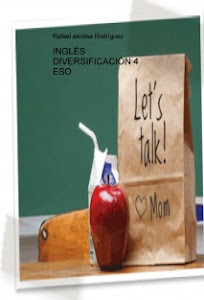LITERARY WEBQUEST ABOUT WILLIAM SHAKESPEARE

1. lesson plan information:
* Instructional Level: Intermediate user.
* School Level: 13-15 years.
* Curriculum Areas: Language Arts, Literature , Drama and History.
* Class time: 1-2 hours.
2. Teacher guide:
+Objectives:
1. Develop an interest in learning about Literature and the English culture.
2. Develop confidence and resourcefulness in searching the web.
3. Develop the mathematic competence, the students will solve problems and they will interact in a creative way to fulfil their objectives.
3. Procedure:
STEP 1: Present a list of questions about the topic. (clear, concise and with short answers are best for this activity)
STEP 2: (optional) Present a list of useful links to carry out the webquest. This way the activity is more controlled by the teacher, it will be better for small students.
STEP 2: Group the students in teams of two.
STEP 3: Set a deadline for the hut itself (such as one class period)
STEP 4: The students will present their answers to the class. The fastest and the best answered questions will win the prize. The class can vote the best group.
The Questions for the WEBQUEST: Knowing Shakespeare!

1. When was William Shakespeare born?
2. Was he married? you have to give the name.
3. How old was Shakespeare when he published his first literary work?
4. How many sonnets did he write?
5. Tell the title of four of these sonnets.
6. Who are the main characters in the play " A midsummer night's dream"
7. Find the name of five shakespeare's works adapted to the cinema.
8. When did he die?
9. What's the name of his theater?
10. Find a basic definition of the typical elizabethan theater.
11. Who was the queen or king at that time?
12. How did he/she become king/ queen?
13. Give the name of the people who wanted to close the theaters in that time.
14. Name four of his comedies.
15. Is Othello a comedy or a tragedy?
16. How was the relationship between England and Spain ?
17. Where did Shakespeare take his inspiration for writting HAmlet?
18. Did he write about the roman empire?
19. What is the name of the two families who lived in Verona?
20. What is the full title of the work: the Merchant of............
List of LINKS :
http://en.wikipedia.org/wiki/William_Shakespeare
http://www.shakespeare-online.com/
http://absoluteshakespeare.com/
http://www.online-literature.com/shakespeare/
"Neither a borrower nor a lender be;For loan oft loses both itself and friend,And borrowing dulls the edge of husbandry.This above all: to thine ownself be true,And it must follow, as the night the day,Thou canst not then be false to any man.Farewell: my blessing season this in thee!"--Lord Polonius, Hamlet Act I, Scene 3



































